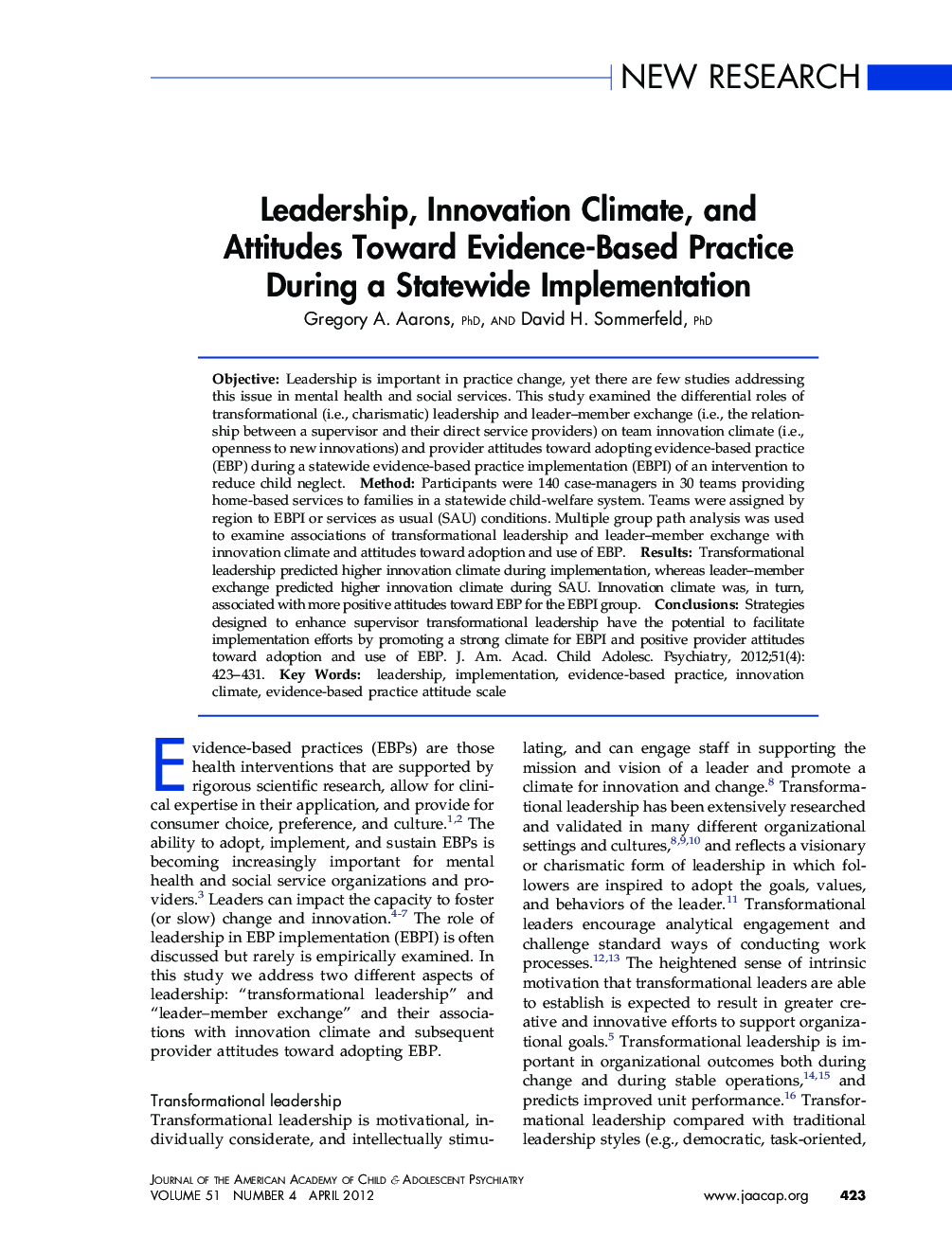| Article ID | Journal | Published Year | Pages | File Type |
|---|---|---|---|---|
| 325370 | Journal of the American Academy of Child & Adolescent Psychiatry | 2012 | 9 Pages |
ObjectiveLeadership is important in practice change, yet there are few studies addressing this issue in mental health and social services. This study examined the differential roles of transformational (i.e., charismatic) leadership and leader–member exchange (i.e., the relationship between a supervisor and their direct service providers) on team innovation climate (i.e., openness to new innovations) and provider attitudes toward adopting evidence-based practice (EBP) during a statewide evidence-based practice implementation (EBPI) of an intervention to reduce child neglect.MethodParticipants were 140 case-managers in 30 teams providing home-based services to families in a statewide child-welfare system. Teams were assigned by region to EBPI or services as usual (SAU) conditions. Multiple group path analysis was used to examine associations of transformational leadership and leader–member exchange with innovation climate and attitudes toward adoption and use of EBP.ResultsTransformational leadership predicted higher innovation climate during implementation, whereas leader–member exchange predicted higher innovation climate during SAU. Innovation climate was, in turn, associated with more positive attitudes toward EBP for the EBPI group.ConclusionsStrategies designed to enhance supervisor transformational leadership have the potential to facilitate implementation efforts by promoting a strong climate for EBPI and positive provider attitudes toward adoption and use of EBP.
